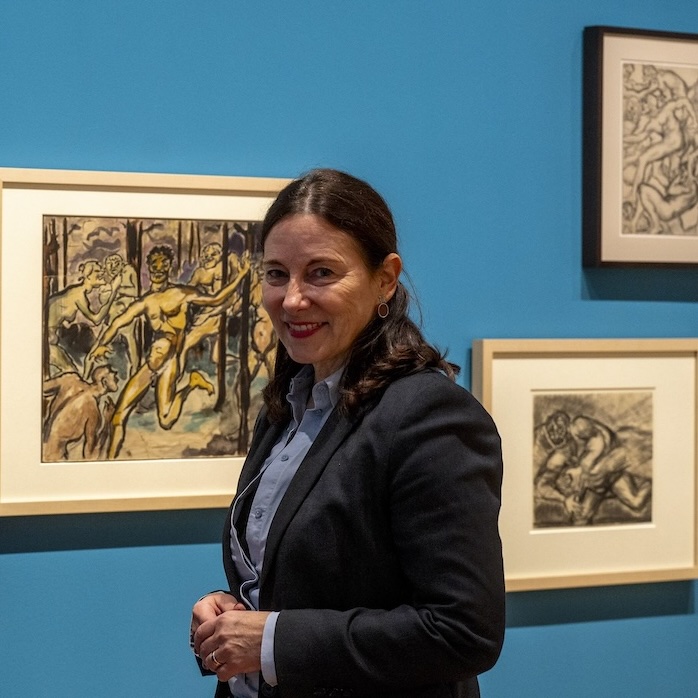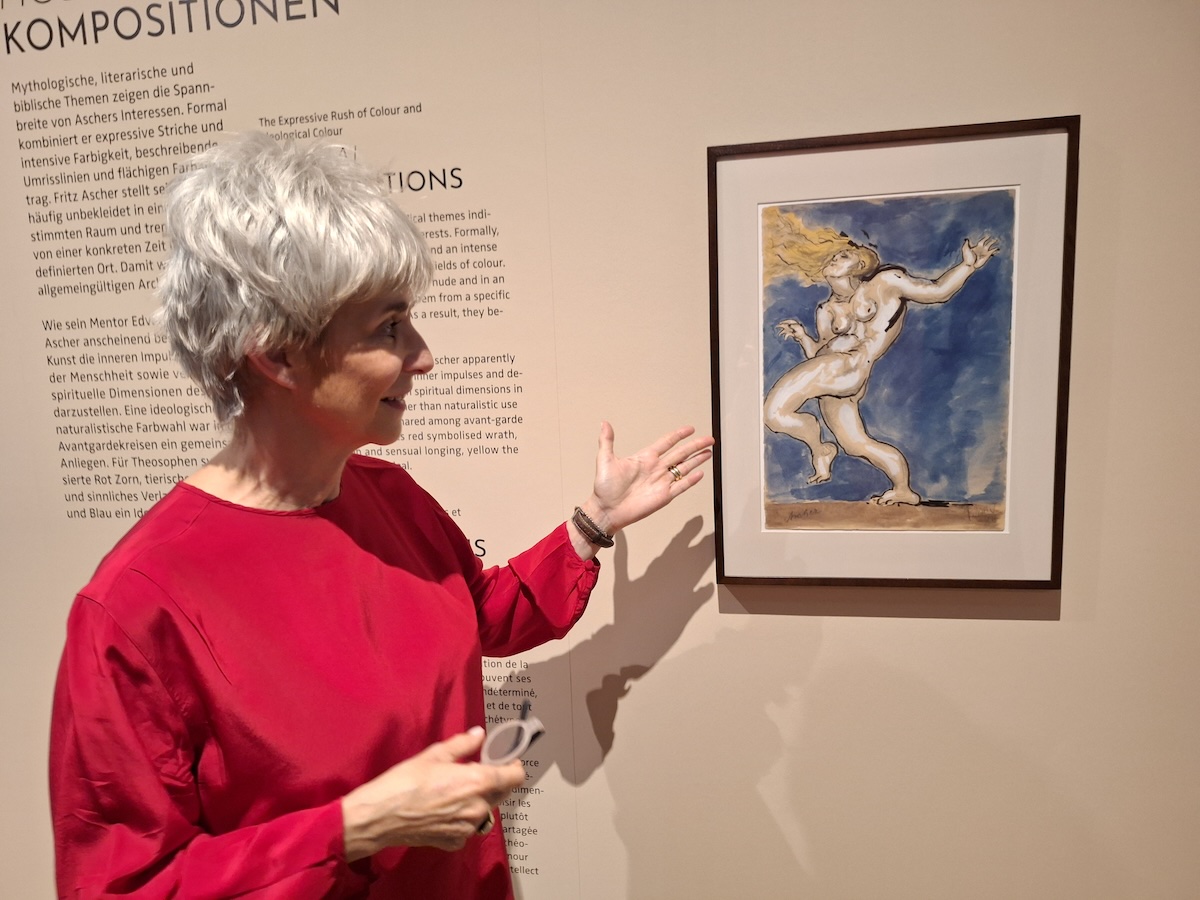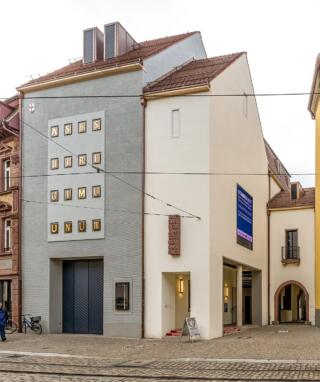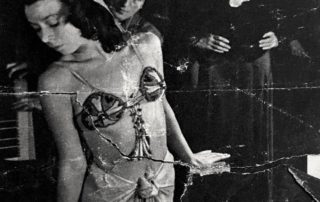Rachel Stern2024-12-18T05:55:27-05:00December 4th, 2024|Events, Lectures, Past Events|
Jutta Götzmann, exhibition curator of "Love and Betrayal," presents the artist Fritz Ascher (1893-1970) during a tour. In addition to early charcoal, graphite and ink drawings, colorful gouaches are fascinating. Poems that are considered his "unpainted pictures" and were created in secret during the National Socialist era complement the exhibition. BUY TICKETS HERE The Fritz Ascher Society is a not-for-profit 501(c)3 organization. Your donation is fully tax deductible. YOUR SUPPORT MAKES OUR WORK POSSIBLE. THANK YOU. DONATE HERE
Rachel Stern2024-11-24T14:40:53-05:00October 22nd, 2024|Events, Lectures, Past Events|
Der spätexpressionistische Künstler Fritz Ascher (1893-1970) überlebte zwei Weltkriege und die Verfolgung durch das nationalsozialistische Regime. Als aufmerksamer Beobachter der Schrecken des Ersten Weltkriegs und der revolutionären Unruhen wandte er sich christlich-spirituellen Themen zu, die er radikal neu interpretierte. In intimen Zeichnungen beschäftigte er sich ab 1916 mit dem Thema Liebe und Verrat, sowohl in seiner Auseinandersetzung mit dem Kreuzigungsthema als auch mit der Figur des Bajazzo in der tragikomischen Oper „I Pagliacci“. Kurzvortrag und Führung von Rachel Stern zeigen den Künstler in seinem sozialen und politischen Umfeld. Image above: Fritz Ascher, Im Wald, um 1919. Weisse Gouache und schwarze Tusche über Aquarell und Bleistift auf Papier, 34 x 32,2 cm © Bianca Stock The late expressionist [...]
Rachel Stern2025-03-03T12:08:54-05:00August 12th, 2024|Exhibitions, Past Exhibitions|
The late Expressionist artist Fritz Ascher (1893-1970) survived two world wars and persecution by the National Socialist regime. A close observer of the horrors of World War I and revolutionary unrest, he turned to Christian spiritual themes, which he radically reinterpreted. In intimate drawings, he dealt with the theme of love and betrayal from 1916 onward, both in his exploration of the crucifixion theme and with the figure of Bajazzo in the tragicomic opera "I Pagliacci." Ascher's strong and unique artistic voice is evident not only in his artwork, but also in his poems. These were written when he was no longer allowed to work under National Socialism because of his Jewish roots and as a representative of modernism, [...]
Elizabeth Berkowitz2020-09-16T19:55:58-04:00September 16th, 2020|Lectures|
View a recording of this event HERE. EXCLUSIVE: Watch Annette von Wangenheim's German language documentary film "Tanz unterm Hakenkreuz" from 2003 HERE. Big thanks to Annette von Wangenheim and Sabine Rollberg for making this possible! Gyp Schlicht speaks at 38:02 min. Lecture featuring Sabine Rollberg, Professor Emeritus of Documentary Film at the Academy of Media Arts in Cologne and former ARTE Representative and ARTE Commissioning Editor for WDR Moderated by Rachel Stern, Executive Director of the Fritz Ascher Society in New York In times of Nazi Germany, becoming an artist was not the typical career path for women. The „deutsche Frau“ was supposed to represent the “good housewife”, as a mother of many children, not wearing make-up and fancy dresses. The Nazis were refuting [...]
Rachel Stern2020-09-25T07:28:27-04:00August 19th, 2020|Events, Lectures, Past Events|
View a recording this event HERE EXCLUSIVE: Watch Annette von Wangenheim's German language documentary film "Tanz unterm Hakenkreuz" from 2003 HERE. Big thanks to Annette von Wangenheim and Sabine Rollberg for making this possible! Gyp Schlicht speaks at 38:02 min. Lecture featuring Sabine Rollberg, Professor Emeritus of Documentary Film at the Academy of Media Arts in Cologne and former ARTE Representative and ARTE Commissioning Editor for WDR Moderated by Rachel Stern, Executive Director of the Fritz Ascher Society in New York In times of Nazi Germany, becoming an artist was not the typical career path for women. The „deutsche Frau“ was supposed to represent the “good housewife”, as a mother of many children, not wearing make-up and fancy dresses. The Nazis were refuting what [...]






